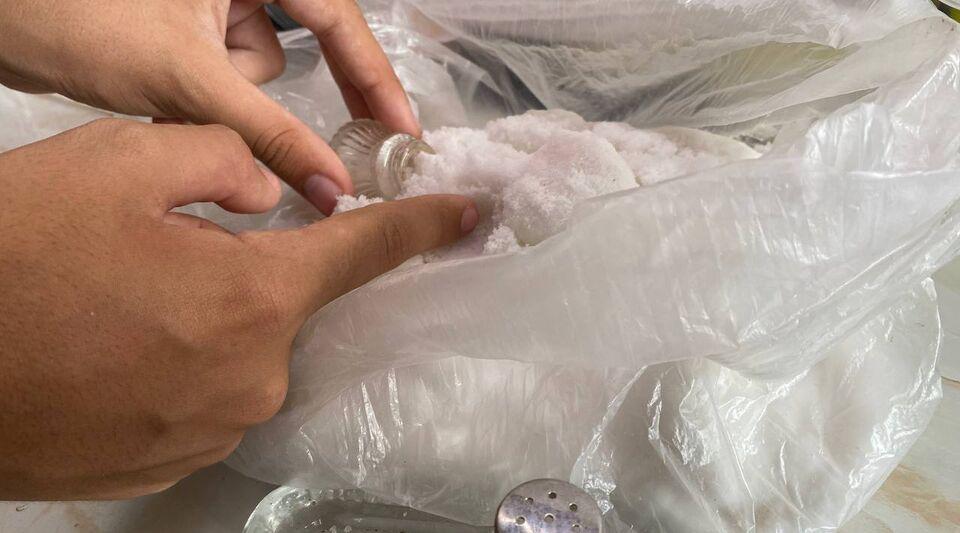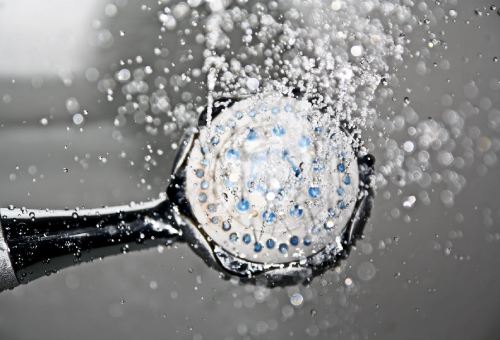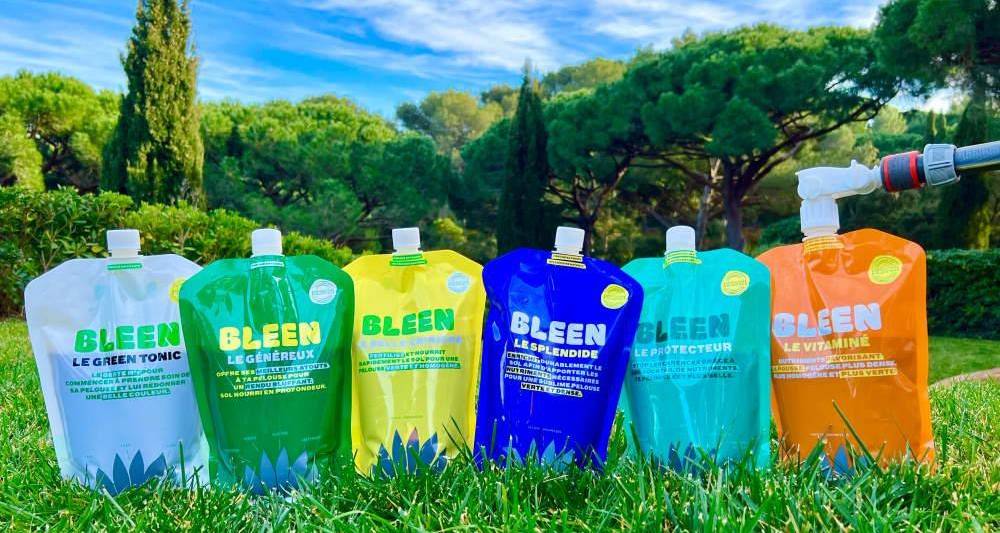14ymedio.com | Cuba In Cuba, salt "is a problem", as are coffee, electricity or masks
A product as basic in the world and as elemental on an island as salt is another source of problems for the authorities, who lately don't spend a day without having to give an account, even to the official press, for the lack of an article, be it tobacco, light, coffee or masks.
This Tuesday it was the turn of the salt, which arrives so wet in the pantries of Cubans that not even the rice that must be put in the salt shakers to be able to serve it manages to detach the grains. Jorge Luis Bell Álvarez, director of Ensal, has had to face this Tuesday to justify the situation. According to his version, the only salt mine in Cuba with technology capable of producing dry salt is the one in Guantánamo, which is distributed in that province, in addition to supplying the rationed markets of Havana. In total, it is responsible for 46% of salt production in Cuba.
The rest of the island is the responsibility of the El Real, Matanzas and Joa salt mines, which only make wet salt, the self-confident official explained to Granma. Bell Álvarez acknowledges that the product, which he treats as one more market option, "is a problem", but adds that the 13 provinces that do not receive salt from Guantánamo – which has a drying oven – sometimes do have the "benefit" to enjoy the dry salt.

The manager says that the technology used to centrifuge the salt is not the right one, but the one used in the sugar mills. To remedy this, the Government is working on the importation of four centrifuges and "thinks" of another investment to improve the El Real salt mine with indirect drying of the fluidized bed. But everything is, at the moment, castles in the air.
The Granma article is grateful that, despite the quality and the "problems in distribution and sales", the amounts planned for the first half of the year have been met. But with the summer, the situation was twisted by the shortage of energy, "both by diesel, by allocation, or by the interruption of the service due to the lack of generation."
This meant that in August the extraction plan was fulfilled at 92.7% and that in September the 475 tons of salt necessary to cover the commitments had to be recovered.
The lack of electricity has also hampered production, which in August was 92.1% of what was expected and in September it is estimated that it has been 97%. The 1 kilo bag assigned to the basket, he insists, has not failed significantly, fulfilling the plan in August at 99.5% and with a similar amount for this past month.
However, the amount sold for the basic basket is insufficient for many households, which not only use salt to add to recipes but also in other widely used cleaning, scrubbing and disinfection preparations given the lack of industrial products of this type. type.
"I scrub with a mixture of powdered detergent, vinegar, bicarbonate of soda and salt," a woman from Havana who hasn't been able to buy a dishwasher for months tells 14ymedio. "The ones that are sold are in the stores in hard currency and I don't have access, so I make my own repair and consume part of the salt that they give me by the book in that."
Others use the salt for the widespread sale of roasted peanuts, which is one of the foods that is still most widespread on Cuban streets. "Everything has gone up, peanuts have gone up, the role of cones is also through the roof and salt is lacking, I don't know how much I'm going to have to sell for to make it profitable," warns Humberto, a peanut grower who works in the Calzada del Cerro area.
The product destined for tourism has little to do with what the nationals consume and is fine cuisine. For this reason, last year the usually imported salt was replaced with Guantánamo salt, the only one capable of reaching that standard, to a certain extent. In December 2020, 30 tons of extrafine table salt and 180 tons of kitchen salt were delivered, and for the current reopening, the order is for 40 tons of extrafine table salt and 120 of kitchen salt.
Bell Álvarez added that the lack of electricity has meant the loss of 344 hours of work, which is equivalent to approximately 3,400 tons of salt.
________________________
Collaborate with our work:
The 14ymedio team is committed to doing serious journalism that reflects the reality of deep Cuba. Thank you for joining us on this long road. We invite you to continue supporting us, but this time by becoming a member of our newspaper. Together we can continue transforming journalism in Cuba.









2130